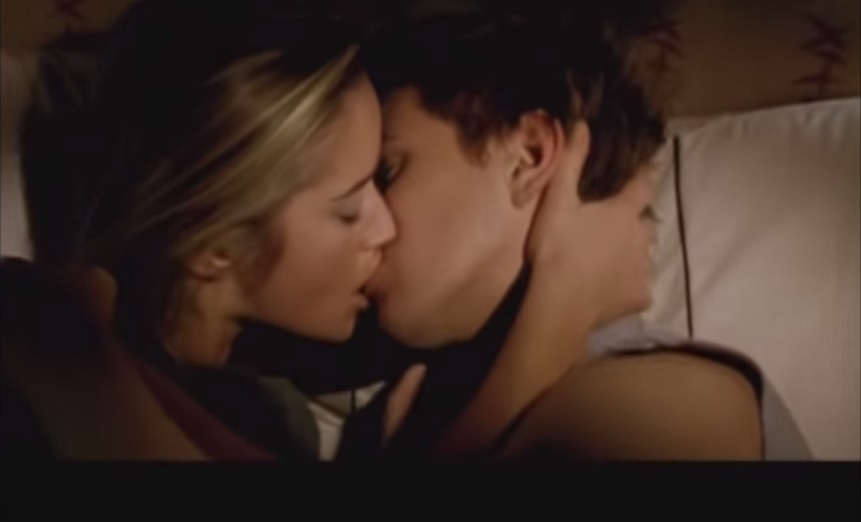Queer Portrayal In Contemporary Irish Cinema
Cowboys and Angels:Queer Eye for the Irish Guy
Atypical to the other films presented on this site, Cowboys and Angels does not represent a greater examination of gay presence in Ireland or its governance restricting them. Instead, the film follows Shane, a boring, naive young man starting a new job in the city. In attempting to forge a distinct identity, Shane turns to his gay roommate Vincent, who works to instill Shane with a modern sense of style, lest Shane becomes stuck in
Shane's story begins with him moving into the city to start a new job in civil service. His roommate, Vincent, who is gay, is studying to become a fashion designer in order to follow his dreams and move to New York. Shane, who has acquiesced into his new job, is frustrated by this new liberal space and decides to do drug runs for his neighbor while also getting a makeover from Vincent. The film follows Shane's growth as he adjusts his identity in this new space.
At first, Shane is shown to be troubled by this city. Shane walks the streets at night, where this city becomes virulent and hostile. The music of the bar bursts out as it fills the streets of the city, giving it a violence within its claustrophobic streets. His job working civil service is the overt reminder that without some significant change in his life, he will be stuck with this job for the rest of his life, evidenced by Jerry and the clock he receives at his retirement party. Shane's goal, ultimately, is to establish a new identity to avoid the mistakes of a previous generation so obstinate against change. Shane ultimately relies on Vincent in order to adjust him into this new space, one populated by mainly queer folk. Vincent, contrastingly, has no trouble in navigating these areas. Early in the film, he is shown flirting with an older man in public, eventually leading to some sexual encounter later that night. This space is Vincent's, and only he can serve as the conduit for Shane's new identity.
Unique to a film featuring homosexual characters is the lack of same-sex sexual activity. Partway through the film, we discover Keith, Shane's drug dealing neighbor, has romantic feelings for Shane. Shane lies on the floor, stunned from his drug use at the local bar frequented by the film's characters. Keith lies on top of Shane, gradually becoming more intimate, until Shane finally responds that he is not interested . Keith accepts their rebuff and leaves, not to be seen in the film again. Meanwhile, Vincent and Gemma, are making love in Vincent's bedroom. Vincent goes along with Gemma, but the pair area eventually shown to be lying apart from each other in bed, both looking unsatisfied with what transpired. The two love scenes are intercut with each other, with both ending in an unfulfilled sexual encounter. And though Vincent is shown pursuing sex with an older man early on, this becomes merely a plot point to quickly resolve Shane's drug narrative before the film's end.



Again, gayness is not explored fully in that Vincent serves only to better Shane. Gemma's infatuation with Vincent implies an attractiveness associated with homosexuality. The film is reminiscent of Queer Eye for the Straight Guy in that Vincent serves to better Shane's life, rather than exploring each characters identities. Debbie Ging describes the film's failing to explore queer identities, saying "homosexuality is both depoliticised and desexualized and thus rendered synonymous with camp... it is made available to all: not so much as a means of destabilizing heteronormative masculinity as a way of reforming with a more liberal consensus" (195). By the end of the film, Shane has managed to seduce Gemma, a character defined as bi-curious at the beginning of the film, pulling her out of her queer identity.
